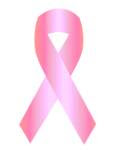iCAD, Inc. (Nasdaq: ICAD), an industry-leading provider of Computer-Aided Detection (CAD) solutions for the early detection of cancer, today announced that the Company has achieved record-high customer satisfaction ratings in the Mammography CAD market, according to the independent healthcare research group MD Buyline.
In MD Buyline’s User Satisfaction Report for the first two quarters of 2008, iCAD remains #1 in mammography CAD for user satisfaction in system performance, system reliability, installation/implementation, applications training, service response time and service repair quality compared to Hologic/R2. Additionally, iCAD has attained record-high customer service ratings in the categories of System Reliability, Service Repair Quality and overall service and quality.
source: iCAD
7.25.2008
iCAD Achieves Record-High Ratings in Mammography CAD User Satisfaction
7.24.2008
Lidocaine Gel Could Make Mammograms More Comfortable
Mammograms are not one of the Top 10 things women look forward to each year. In fact, they may be in the Bottom 10, or even the Bottom 3. While they don't compare to the pain of surgery or childbirth, mammograms are an uncomfortable procedure for most women, but one that is considered a necessary evil. It is easy for many women to wince at the first thought of getting their screening for breast cancer. But help may be a smear away.
A new study conducted shows that a numbing gel could ease the pain associated with getting a mammogram and may make women more likely to come back for subsequent screenings. The lead author of the study said that the gel might act as a simple secret weapon: "We now have something that we know reduces discomfort with screening mammography in women who expect higher discomfort—lidocaine gel."
source: Healthnews
7.09.2008
Aurora(R) Breast MRI Society Debuts The Journal Of Breast MRI
North Andover, Mass. – The Aurora® Breast MRI Society, a rapidly growing group of dedicated breast radiologists committed to advancing the use of cutting-edge dedicated breast MRI technology, previewed the newly developed Aurora Breast MRI Society Global PACS Teaching Tool. The teaching tool was introduced before an audience of more than 100 radiology professionals in attendance at the second annual Aurora Breast MRI Society Meeting, recently held in Newport Beach, Calif.
“The establishment of the Aurora Breast MRI Society Global PACS Teaching Tool is incredibly exciting, as it will provide Society members an exclusive Internet-based community in which they are able to network with colleagues, share clinical knowledge and data, enhance professional development, and improve the management and treatment of breast disease,” said Kamilia F. Kozlowski, M.D., president, Aurora Breast MRI Society, and medical director/CEO and clinical breast radiologist, Knoxville Comprehensive Breast Center. “We are proud of the progress made in supporting our Society�s mission through the introduction of the Aurora Breast MRI Society Global PACS Teaching Tool and know that this will be a very valuable tool for all practitioners using it.”
source: Aurora Breast MRI Society
7.07.2008
Scientist Presents New Breast Cancer Imaging Method
Flemming Forsberg, Ph.D., professor of Radiology at Jefferson Medical College of Thomas Jefferson University, presents updated results on the effect of using subharmonic imaging (SHI) in determining a breast cancer diagnosis at the Fifth Era of Hope meeting in Baltimore, Maryland. SHI – a new breast cancer imaging technique – appears to improve the diagnosis of breast cancer relative to conventional ultrasound and mammography.
“With these recent findings, SHI could provide a major improvement to breast imaging and patient care,” said Dr. Forsberg.
source: EmaxHealth
7.03.2008
Experimental Imaging System Helps Detect Breast Cancer
(HealthDay News) -- Researchers have devised a new breast-imaging technology that appears to be as accurate as MRI scans but several times cheaper.
The technique, called molecular breast imaging (MBI), is still in the early stages of development, the scientists added.
"We envision MBI being useful for women who are not served well by mammography, those who have mammographically dense breast tissue, and those at increased risk for breast cancer," said study author Carrie Beth Hruska, a research fellow at the Mayo Clinic in Rochester, Minn. "We have been working on the technology for the last six years. However, there are a lot of technical challenges that have had to be overcome, so it's still in the very early stages for use in patients."
source: US News & World Report
